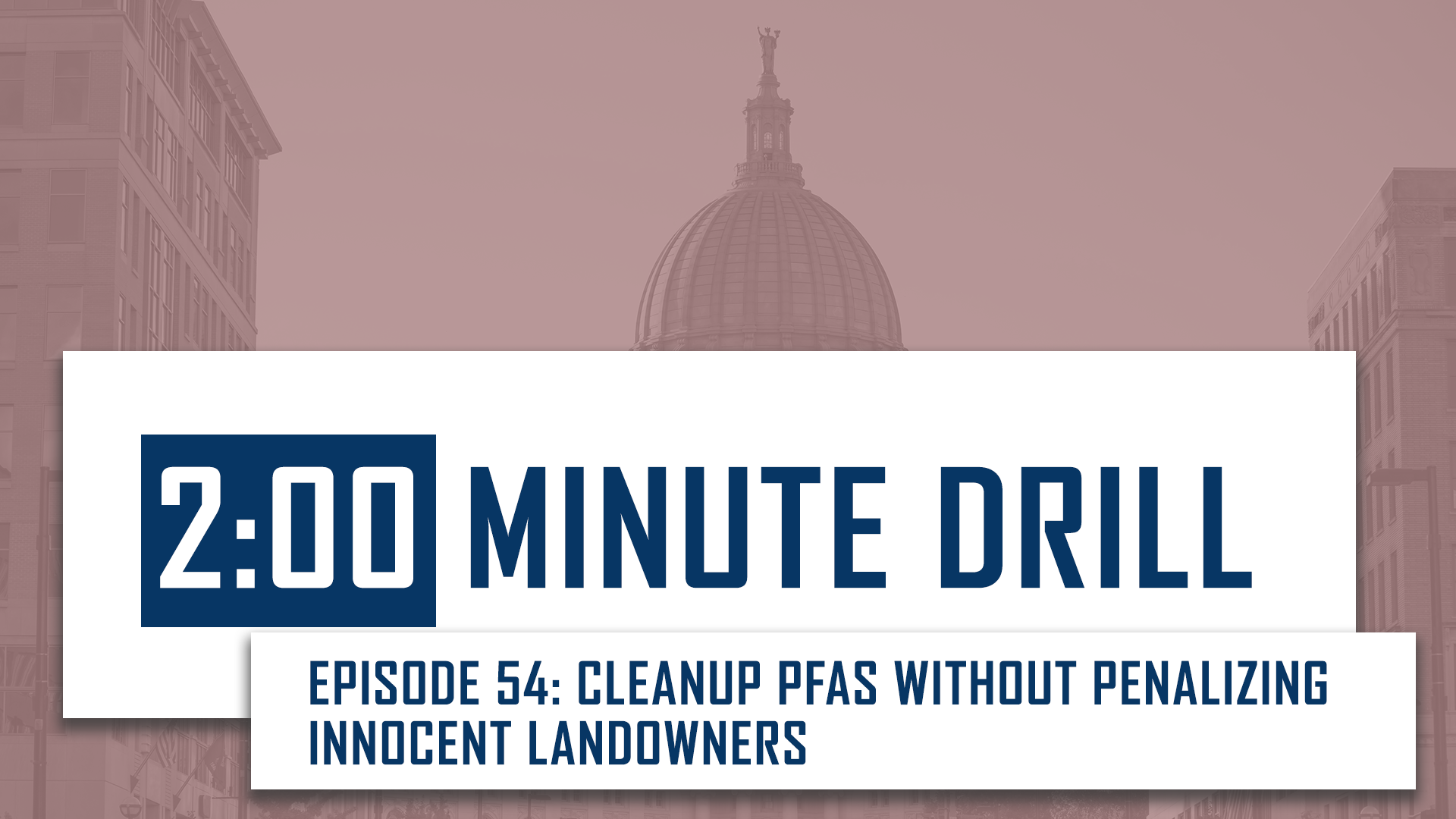By Kurt R. Bauer
President/CEO
Wisconsin Manufacturers & Commerce – Wisconsin’s Chamber
 The State Chamber of Commerce conducts an economic survey of member CEOs twice per year. The most recent survey in June revealed something surprising. When asked “what is the most important issue area for your business,” state fiscal policy ranked number one, beating out reducing taxes, health care affordability and energy.
The State Chamber of Commerce conducts an economic survey of member CEOs twice per year. The most recent survey in June revealed something surprising. When asked “what is the most important issue area for your business,” state fiscal policy ranked number one, beating out reducing taxes, health care affordability and energy.
That result shows businesspeople in Wisconsin get it. They understand that when state government spends beyond its means, tax increases are sure to follow.
That is exactly what happened in 2009. Wisconsin had a $6.7 billion budget deficit and Governor Jim Doyle decided to sock businesses with more than $3 billion in new taxes. Doyle also used $2.2 billion in federal “stimulus” and what the State Supreme Court later ruled to be an unlawful raid of the Medical Patient Compensation Fund to close the gap.
But that still didn’t do the trick because those and other so-called solutions failed to address the root cause of the problem, which was too much spending.
When he took office in January 2011, Governor Scott Walker inherited a $3.6 billion budget deficit that was per capita among the highest in the nation. By then the easy choices were gone. After 15 years of running multi-billion dollar deficits the only thing left was to right-size state spending. But just as importantly, Walker needed to protect those spending reforms by limiting the power of the public sector unions, which had directly benefited from growing government.
Wisconsin was the first state to grant government employees the privilege to bargain collectively back in 1959. Prominent liberals like Franklin Roosevelt and former American Federation of Labor President George Meany opposed giving public workers that power because it was contrary to the best interest of taxpayers. Wisconsin did it anyway and what followed over the next half century was a predictable expansion of state and local government and the taxes to support it.
By ending the failed collective bargaining experiment in his landmark budget reform law, Walker wrestled the disproportionate power wielded by the public unions over government and gave it back to the taxpayers. The results have been impressive. Act 10 has saved state and local units of government $3 billion and per capita municipal spending has actually decreased 3 percent. The Budget Stabilization Fund (a.k.a, rainy day fund) has a $279.5 million balance, the largest since it was created. And the state pension system is among the strongest in the nation.
Walker has a very strong record, especially when you consider that about a third of his first term was paralyzed by protests and recalls. He has also been handicapped by the worst national recovery from a major economic downturn since the Great Depression. Despite that, Walker’s reforms have positioned Wisconsin for growth. The state has created more than 100,000 new jobs and 20,000 new businesses. Unemployment is both at a six year low and continues to be below the national average. Plus, incomes are up, which indicates that the jobs being created are family supporting ones rather than part-time.
Many politicians claim to be reformers, but few have delivered like Scott Walker. As a result, he has more than earned reelection on November 4.
# # #
Follow Kurt on Twitter @Kurt_R_Bauer
Founded in 1911, Wisconsin Manufacturers & Commerce is the state chamber of commerce and largest business association representing 3,700 employers of all sizes and from every sector of the economy.





